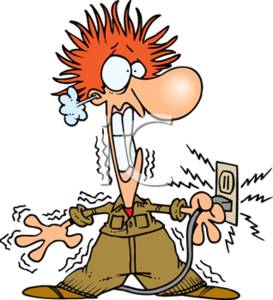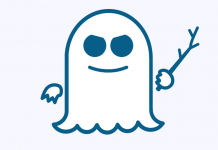Today around 70% of Indian web population is on social networking sites like Facebook, Orkut and Twitter. Most of them belong to teenagers and youth. Netizens are spending atleast 1 hour daily and many of them getting addicted by social networking sites. Farmville, Mafia Wars Game, uploading photos, useless quizzes are just few of time killers. Some people are benefiting and some are wasting their time. Everyday you spend hours on social networking sites knowing the benefit of it but without knowing the dark side of it.
Criminals will target you – if they can. ‘Where are you now’? – This simple question can be used to target you. Many of Facebook or Twitter users update each and every move they make like where they will be partying tonight or shopping. The average Cyber criminals are educated, intelligent and almost untraceable.
Despite being in the top five on the list of nations with the largest number of computer and internet users, we do a little to secure computers against threats like identity theft, virus/worm attacks, boot attacks, phishing etc. Perpetrators use the anonymity, speed, access of the net to their advantage. Only recently the government is trying to create some awareness.
Young people get hooked to social networking sites easily. They are first to join communities created by users. Many are about games, movies, religious, violence, sex, etc. This could lead to online harassment or even cyber crime. In developing countries such things largely go unreported. There is a lack of awareness amongst the police, citizens and other officials. What can be done is to train them all about the pitfalls, how to save themselves, what to do when confronted with an unpleasant situation, how to react, where to complain etc. Teaching cyber etiquette can start at the school itself. This will help in creating young adult more careful and vigilant.
According to Varun Chauhan, a software engineer fromDelhi, “The social networking has evolved beyond the online network of friends. It’s like your own internet space where you can be yourself, express your thoughts, extend your network to both known and unknown people, share your interests, increase knowledge, and much more.”
View of Shishir P. Raven, a social media analyst, is slightly different. According to his view “Physical Activity Index tends to move towards zero. Yes social networking sites are addictive and every addiction kills time and money. Often I think that instead of surfing social networking sites I could (or should) have been swimming, playing football or involved in some other physical activity to maintain my health and meet real friends whom I can get know to much better compared to online friends.
Facebook, Twitter, Orkut are hunting ground of cyber stalkers, squatters, hackers, bullies etc. Oh yeah it still is a cool place to hang around – just be safe. Take care of certain things:
- Always use a screen name instead of your real name. Use a strong password and don’t share it.
- Never give out your address, telephone number, hangout spots or links to other websites or pages where this information is available.
- Be careful about sending pictures to people you do not know very well.
- Never tell people personal or private information about your friends or family.
- Never assume you’re completely anonymous online. Even if you don’t put personal information online, there are different ways that people can still figure out who you are and where you live.
- Don’t download crap – you might let in a Trojan that steals passwords or worst uses YOUR computer for hacking or cyber terror attacks.
- Don’t share any banking information ever.
Some social media specific safeguards :
- Get to your favorite social media sites by typing in the exact address into your browser. Never go in through an email link or via another website to reach it because it could be a trap to get your account name and password.
- When visiting a site, and logging in, look for the padlock icon. This is an indication that the site is authenticated and encrypted
- Take time to learn how cyber criminals work. The most common methods are through email (phishing and spam), malware, adware, and spyware.
- Don’t mistake the user-friendliness of social networking sites for safety. This user-friendliness increases the ways that people can find out more about you.
- Know how your chosen social media sites protect your privacy.
- Don’t accept just anyone as part of your friend’s list.
- Last but not the least, don’t put your life on Social Networking sites.
The net is not a bad place, but there are certain rules, as, say when you go out in your city. Follow the rules and enjoy. Shame and ambiguity won’t save you – the right information will.
Stay safe…Stay connected !!




